Search
Did you mean: Macedon?
Search Results

Image
Gold Myrtle Wreath
Gold myrtle wreath from Macedonia, 4th century BCE. A religious symbol, also indicating social position, it was worn at public appearances, religious ceremonies and symposia, and accompanied its owner to the grave. Archaeological Museum...

Image
Myrtle Wreath
Gold wreaths that imitate natural ones come mainly from royal tombs in Macedonia, Asia Minor and southern Italy. The crowning of the dead with a wreath signified that they were worthy of being rewarded with eternal life after death. The...

Image
Gold Olive wreath
4th century BCE gold Olive wreath from Macedonia, both a religious symbol and indicator of social position and power (Archaeological Museum, Thessaloniki, Greece)

Image
Mosaic Floor at Herakleia Lynkestis
Mosaic floor of the Great Basilica at Herakleia Lynkestis, Macedonia, 5th-6th century.
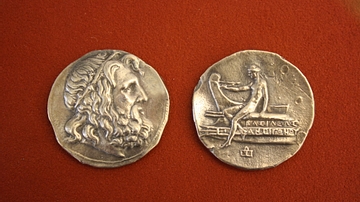
Image
Antigonus Doson, Silver Tetradrachm of Macedon
Silver tetradrachm from Macedonia, reign of Antigonus Doson, 229-221 BCE. O: Head of Poseidon. R: Apollo on a ship's prow.
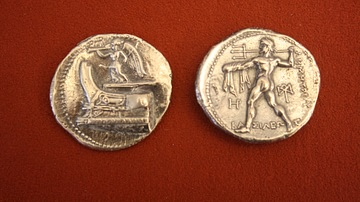
Image
Silver Tetradrachm of Demetrius I of Macedon
Silver tetradrachm from Macedonia, reign of Demetrius I of Macedon, 306-283 BCE. O: Nike blowing a trumpet on a ship's brow. R: Poseidon with trident. The coin was minted to commemorate Demetrius' victory over Ptolemy I at Salamis near Cyprus...
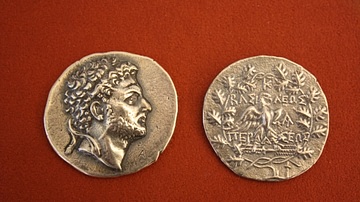
Image
Perseus, Macedonian Silver Tetradrachm
Silver tetradrachm from Macedonia, reign of Perseus, 179-168 BCE. O: Head of Perseus. R: Eagle on a thunderbolt in a wreath of oak.
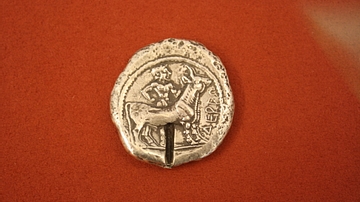
Image
Macedonian Silver Dodecadrachm
Silver dodecadrachm from Derrones, Macedonia, ca 500-480 BCE. O: Nude male figure with two oxen. (R: incuse square).
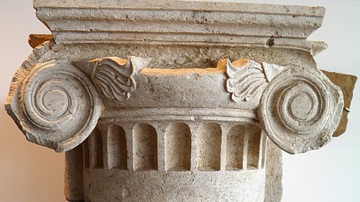
Image
Ionic Pilaster Capital from Pella
Ionic pilaster capital from the palace complex of Pella (Macedonia) which occupied the entire extant of the hill dominating the ancient city, Hellenistic Period (Pella Archaeological Museum).

Image
Herakleia Lynkestis
Herakleia Lynkestis (Heraclea Lyncestis), Republic of Macedonia.